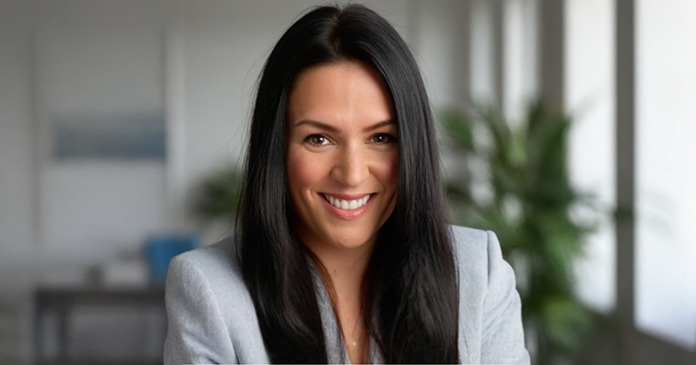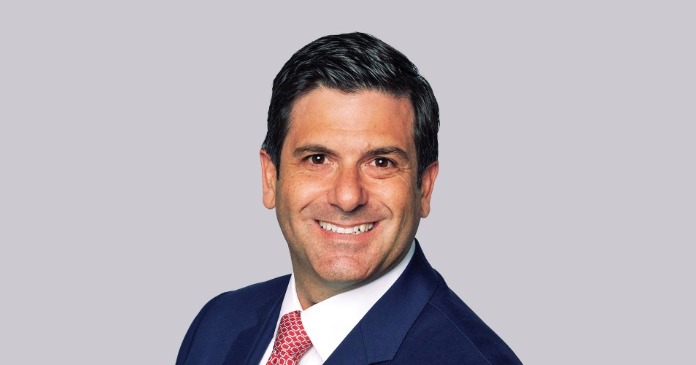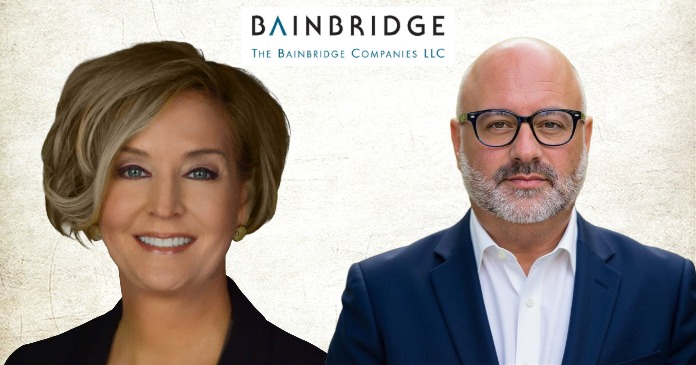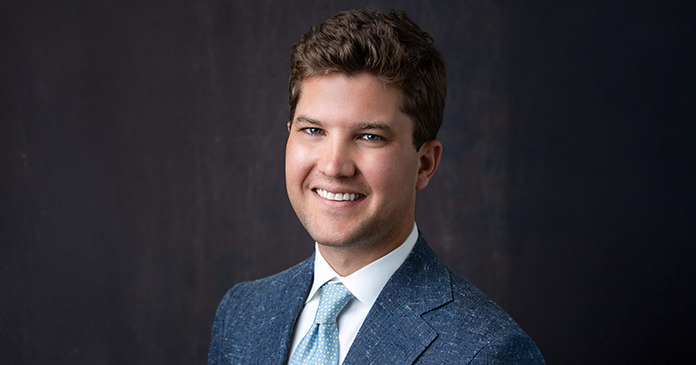Yield PRO TV presents NAHB Power Hitters. Host Linda Hoffman talks with Andrew Spencer, VP, Residential of Peterson Companies.
Transcript: NAHB Power Hitters interview. Linda Hoffman with Andrew Spencer, recorded Thursday, February 16, 2023
(music)
Linda Hoffman: The woods are lovely, dark and deep, but I have promises to keep, and miles to go before I sleep and miles to go before I sleep. Robert Frost could have been talking about the U.S. economy. Or the state of the nation’s housing. Or even the national debt… A couple of weeks ago I had the good fortune to hear another Robert, more of an economic poet than literary. Robert Dietz, chief economist at NAHB, gave us a fairly simple, rather reason-based run down of the economy in the months and years ahead. It’s hard to take any more bad news in today’s constant storm especially in housing. Housing accounts for around 40 percent of CPI and sets the table for the rest of the economy.
According to Dietz we have several more months of housing slow down, inflation, rising materials cost, supply-chain disruptions culminating in a recession in the second half of the year. He believes the Fed’s campaign of raising interest rates will end by Q2 and that mortgage rates will level at around 6 percent. Hope springs eternal.
In multifamily, it’s all about the cycle and multifamily construction boomed in 2022, up 15 percent year over year with a rocking 545,000 apartment starts. But with slowing rent growth, rising unemployment, tightening financing, and a clogged product pipeline, Dietz projects multifamily starts will fall 28 percent this year (that’s around 391,000 units). At present there are more than 940,000 apartments under construction—the highest total since 1973.
Today we speak to someone who contributes directly to that pipeline, Andrew Spencer of the Peterson Companies, headquartered in Fairfax, Virginia. Friends call him Spence. You certainly have miles to go before you sleep with three multifamily properties set to release this year, Spence. Welcome to the show.
Andrew “Spence” Spencer: Thank you. Linda. I appreciate it.
Linda Hoffman: What do we need to know about you and the Peterson Companies?
Andrew “Spence” Spencer: Well, as I said, my name’s Andrew Spencer but I go by Spence. And I’ve been developing multifamily projects for a long time.
I’m currently the vice president of residential tasked with all the multifamily product for the Peterson Companies. I’ve been doing this—development and construction—since I was in high school working for my father’s roofing company during summers. To tell you the truth I can’t remember if I got paid or not, but I know I worked.
In the late 80s I was working for builder out of Columbia, Maryland, right before the blip. And in 89 decided to go back to school. Went back to Ithaca College, got my degree, course that degree was in commercial recreation, nothing to do with what I’m doing now. I worked at Club Med for a while, which did have something with my degree but unfortunately, they only paid you about $3,000 a year so that wasn’t going to work long-term, so I came back to the business. And been working down in the D.C. area since 1995 and been lucky enough to be with the Peterson Companies here since 2013.
The Peterson Companies itself is one of the largest, privately owned, family-owned real estate development firms in the Northern Virginia-D.C. market, probably in all of Virginia. Milt Peterson, who started the company with his wife Carolyn back in 1965 when they purchased, I think 7 acres in Vienna, Virginia. You know, Milt was a hell of a character. The people that knew him, he had a presence about him that just made people want to listen and share and be part of what he was doing. He just had that magnetism about him.
You know, he started from a working-class family up in Massachusetts. Married his high school sweetheart. He’s got four children, one of which is now the CEO of the company. Milt unfortunately passed away in 2021. And we miss him dearly. But, you know, this is a company that builds probably some of the more prominent and successful mixed-use residential and office projects in the DMV—in the District of Virginia and Maryland area is what we call it.
Recently we have expanded here at Peterson and we now have six different divisions, three new ones including self-storage, industrial and data centers. You know, we’re a nimble company so we’re able to change quickly depending on demand and land usage.
Linda Hoffman: The Peterson Companies portfolio is a dictionary of real estate—retail, office, industrial, data centers, self-storage—in addition to single-family and multifamily residential. How do the current development opportunities for multifamily stack up against other property types?
Andrew “Spence” Spencer: Well, you know, as we’re located in the Northern Virginia-Metro D.C. market, you know, it’s much different from other sections of the country. The jurisdictions in this area, which are run at the county level can be extremely difficult and extremely anti-change if you will. So being able to navigate the water, being able to change uses of existing properties—you know, that’s something that Peterson is very good at. Rezoning is one of our fortes and it gives us the ability to—we feel—reduce our risk.
A lot of developers feel that rezoning is a risky enterprise. We don’t feel that way. We’re good at it. You know and as I mentioned we recently expanded business lines because there is a very high demand for, you know, the industrial and data center tech use. But not everybody’s nimble enough to do that type of thing.
I’ll say that multifamily development opportunities, at least the one’s I’ve had here or as a result of Milt’s vision with land that was purchased 10, 20 years ago, you know. And he always used to say, I hate lazy land. But he wanted that land to produce the right thing and so, you know, he had patience, he had vision.
The project that I’ll be delivering in June in our Fairfax Corner Center—it used to be a parking lot. And now I’ve got a 12-story rental project that’s slated to open again in June. You know, it all started when that center first started being developed 20 years ago. So, it’s been a while and we’ll take our time, and we’ll eventually get there.
So, you know, we think that the multifamily opportunities are here. But yeah, you mentioned earlier, financing, cap rates, a lot of those things make it very difficult for people to pencil out the numbers, you know. Luckily, I can get the land cheap because I know the seller.
Linda Hoffman: That’s good. Lazy land. I’m going to remember that. NAHB reported that for-sale multifamily—that is condos—represented only 3 percent of multifamily starts in Q3 of 22. Yet, you have a condo deal in the works. What do you see in condos that most developers don’t?
Andrew “Spence” Spencer: Condos are a hard business to be in. They really are. The project that you’re referencing is one of our partner builders that we have actually sold the lots to—that is building those condos. You know, the D.C. Metro market, like other markets, currently has roughly, I think, a 14 month supply of condo units. Delta Associates, which is a lot of research in this area, you know they’re saying good healthy supply is 24 to 30 months. So, we’re well shy of that. I think that that the condo shortage that we have here mirrors, you know, all types of housing, right?
We fell behind in this area during the Great Recession and I don’t think that we’ve made it up yet. So, there’s obviously opportunity there, you know, for people that want to develop condominiums. You know, it’s got to be in the right spot, have the right piece of land and you know your customer.
Linda Hoffman: I attended a NAHB panel of builders and developers in Vegas a couple of weeks ago. The consensus seemed to be that building condos was an open invitation to be sued. How do you protect yourself against liability for construction defects, real or imagined?
Andrew “Spence” Spencer: Now that’s a great question. I guess the easiest way to do that is not to build condos, right? But listen, if your condo developer and you’ve more than likely probably done it before… I finished up sales on my last condo project in 2020 and I’m working right now to finish up warranty-related claims. You know, each jurisdiction is very different and how they handle consumer rights and, you know, whether they’re pro-buyer or pro-seller, right?
So, the best way to mitigate against some of these risks down the road is to create a good team. You know, designers and contractors, that you’ve used on previous projects, right? Get to a point where you’ve built trust with one another and know that you can have each other’s back when it comes to it.
You know, that’s a lot easier said than done. But if you can develop that team and you look out for each other, you know, you’ve got a fighting chance of delivering a quality product, right, that buyers are happy to live in.
Like they say, no squeaks no leaks. That’s what they’re looking for. The other big bang probably is having an attorney who specializes in condominiums, right? No one knows condo legislation inside and out, but having a very good attorney that can get you there, that can draft strong governing documents including the sales agreement, you know, limited warranties, that sort of thing is going to make your life and everybody’s life a lot easier down the road.
You know, the contractor may still try and limit the tale on his insurance, the architect may get, try and put up a note that says you will handle his legal claim should there come or arise, but at the end of the day if you’re working together you should have a successful project.
Linda Hoffman: Your founder, Milt, you mentioned him, Milt Peterson, liked planned communities. In addition to lazy land, he also said he liked communities where “people could live, work, play and shop.” Does that remain the focus of Peterson and just how important is walkability?
Andrew “Spence” Spencer: I think, absolutely, I think we still focus on those four tenants. We want people to have a full, round, rich life. You know, Peterson treats its employees the same way. You know, not many people that I work with in and around the industry have off between Christmas and New Year’s. We do, every year because they want us to spend with the family. You know, Milt did start this company with the premise that people should, you know, live close to where they work, where they shop, where they play. You know, we’ve done dozens of master-planned communities over the years, you know, with different shopping centers. You know a lot of is taken from the principles of Robert Simon.
Reston is right up the road where I live and, you know, we want people to be able to enjoy where they are. You know, although, a lot of people in this area sit in traffic for an hour and a half two hours each way to get to their job. That is not something that, you know, we’re trying to build for, right? So, I think the focus here at Petersons is that residential projects will be built in and around the amenities that are needed to give people a quality of life. Walkability, you know, that’s, that’s, you know, who’s definition are we going to use for walkability?
We think our projects are walkable because they do have the amenities that we feel people need. You know if you go onto walk score.com and put in our project you’ll probably get a very low walkability score because, you know, we don’t have Metro access in a lot of Northern Virginia. We do have more now over the last couple years but it’s just not the same as being in an urban city environment.
Linda Hoffman: Are you still able to acquire sufficiently large parcels in D.C., Spence, to allow live— work—shop—play communities?
Andrew “Spence” Spencer: I think it’s becoming increasingly more difficult to find those larger parcels, right, to create these places. But you know we look for land differently than a lot of other development shops because of the way we approach rezoning in our—the fact that we embrace the rezoning to get what we want. You know, we’ve purchased land for a long time. We’re not against holding it and letting the right plan materialize.
You know to give you a snapshot of where we are right now across our divisions: We have 2.1 million sq. ft. in entitlement phase right now. Development and construction lines we’ve got 6.5 million sq. ft. going right now. And in our pipeline, we’ve got 2.3 million sq. ft. so close to 11 million sq. ft. and about 3,000 residential units that I’ve got to figure out.
Linda Hoffman: Hard job.
Andrew “Spence” Spencer: Yeah.
Linda Hoffman: Spence, you went back to school to get an MS in Real Estate—this after you already worked in development for over a decade. Have you found the knowledge to be useful, and would you recommend getting field experience before pursuing an advanced degree in real estate?
Andrew “Spence” Spencer: You know, another very good question and that is a very personal, you know, subjective question. You know everybody’s got different life experience. I think for me it came about because—you know—the day before Thanksgiving in 2007 I got let go from my job and I spent the next three months interviewing with all the big, you know, apartment development firms and everything else, and—hey, you’ve got great work experience. You really have done a lot of stuff but unfortunately, it seems, the position—you need a master’s degree.
So, I think part of why I went back to school was a hedge against future, you know, possible job interviews, which hopefully I’ll never do another one. And, you know, it really all depends on how you want to pursue the career. To some people they need to get into it and find out if they really like it before they stay in it. Others, most developers that I know and myself included—I came from the construction side of things—lots of developers come from the law, from architecture, you know, from all over. Nobody is, nobody I don’t think is born a real estate developer unless they’re a Peterson and they’re born into it, right? I mean that’s the way you become a natural real developer.
So, I think going back to school, getting my degree while—I don’t know that it taught me anything new—it definitely strengthened some of my weaker skill sets. Financing, you know, best use strategies. That sort of thing. You know, I knew how to build something, but I wasn’t that great at putting the numbers together and I think that really strengthened that. And a lot of, at the time, Johns Hopkins program that I went to was one of the only programs in D.C. and it was about meeting contacts, right?
It is like 50 percent was school. Fifty percent was who you meet that you can then use once you get out of school. So, you know that dearth of contacts just was attractive as well, you know in hedging against the next event.
Linda Hoffman: Spence, thank you for being with us today. I have learned a lot. I’ve always admired the Peterson Companies. You’ve certainly produced some great product and it’s great to see a skilled company navigate any market or economy.
Andrew “Spence” Spencer: Thank you very much. I appreciate it, Linda. And hopefully we’ll have a lot more to show in the coming years.
Linda Hoffman: Housing providers like Spence and The Peterson Companies, the relentless, the driven, the high level strategists of our time—this is what makes our nation great. In all times, but especially in the times that try men’s souls… like say now.
Thank you for being with us today. Builders, developers, operators. Those who create. You are the ones who fight the storm because you know housing is what the country needs to be viable, healthy and strong. And to quote the timeless Herbert Stein: If something cannot go on forever, it will stop. And indeed, we have miles to go before we sleep.
I’m Linda Hoffman. Look for our next exciting episode of NAHB Power Hitters.
(music, close, credits)
NAHB POWER HITTERS (logo)
In association with National Association of Home Builders (logo)
Building Homes, Enriching Communities, Changing Lives
Yield Pro TV (logo)
An Image Production
Host Linda Hoffman
Executive Producer Andrew Nicks
Research Michael Rudy
Guest selection and coordination Dean Schwancke
Production Image
Yield Pro TV is a production of Multihousing Professional magazine corporation and may not be reproduced or copied in whole or in part without the expressed permission of the publisher.
©2023 Yield Pro, LLC.












